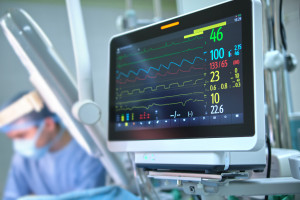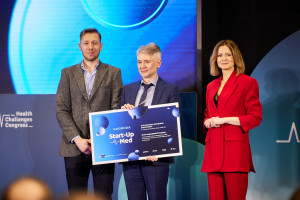Microsoft reveals, results are astonishing. AI diagnoses more accurately and cheaper than doctors

- The new system uses several well-known language models and imitates a real discussion between consultants at the patient's bedside
- Before it can be implemented in offices, it must undergo clinical trials.
- Despite the technological breakthrough, the system implementation may take up to a decade
MAI Diagnostic Orchestrator (MAI-DxO for short) is a system that makes more accurate diagnoses in laboratory tests than humans. AI experts call it a real step towards medical superintelligence. Business Insider Polska writes about what it can already do and what barriers stand in the way of its implementation.
MAI-DxO is to use several well-known language models - from OpenAI o3 to Google Gemini. It "works" in a brainstorming mode, where each AI agent puts forward hypotheses, responds to counterarguments and decides on further tests together. Experts working on this medical superintelligence explain that multi-model "debate chains" imitate a real discussion between consultants at the patient's bedside.
In laboratory tests, it was supposed to recognize diseases with four times greater accuracy than a team of 21 experienced specialists participating in the study. The experiment was conducted on 304 case reports from the "New England Journal of Medicine". In addition, the system selected a 20 percent cheaper set of diagnostic tests. According to Microsoft's AI health experts, there is a chance that this will reduce the spiraling costs of medical care in the future, especially in the United States.
However, as Business Insider points out, not everyone shares this enthusiasm. Eric Topol from Scripps Research and David Sontag from MIT pointed out that the doctors involved in the experiment could not use additional tools. MAI-DxO has also not yet been tested on live patients. The next step will be to conduct randomized clinical trials with real supervision, which would indicate how the system will cope in hospital conditions.
Time for clinical testing and refinementMicrosoft assures that the new system will undergo bedside testing before it is commercialized, and its task will be to support, not replace, doctors.
If the clinical trial results confirm the laboratory results, the system could be included in the Bing search engine and the Copilot suite of tools that answer millions of users’ health queries each month.
Microsoft specialists themselves indicate that their new tool still needs to undergo clinical tests and achieve almost flawless operation, for which they give themselves 5-10 years. The second aspect is regulations. Laboriously implemented EU regulations may halt the implementation of innovations in Europe.
Another barrier is the lawBusiness Insider reminds us that AI-based diagnostics are “high risk” under the Artificial Intelligence Act. Full regulatory obligations will not begin to apply to them until August 2, 2027. This means that until the interpretation of technical standards (including those regarding human oversight and data quality) is finalized, even the finished product will not pass the conformity assessment.
In addition, in Poland, diagnostic software qualifies as Software as a Medical Device and must obtain CE marking under the supervision of the Office for Registration of Medical Devices. The national act on medical devices, delayed by a year compared to the EU deadline, is in force from 2022, but in practice there is a lack of notified assessment bodies - entrepreneurs wait for consents for months, and the procedures are expensive, which particularly affects digital innovations.
Copyrighted material - reprint rules are specified in the regulations .
rynekzdrowia















